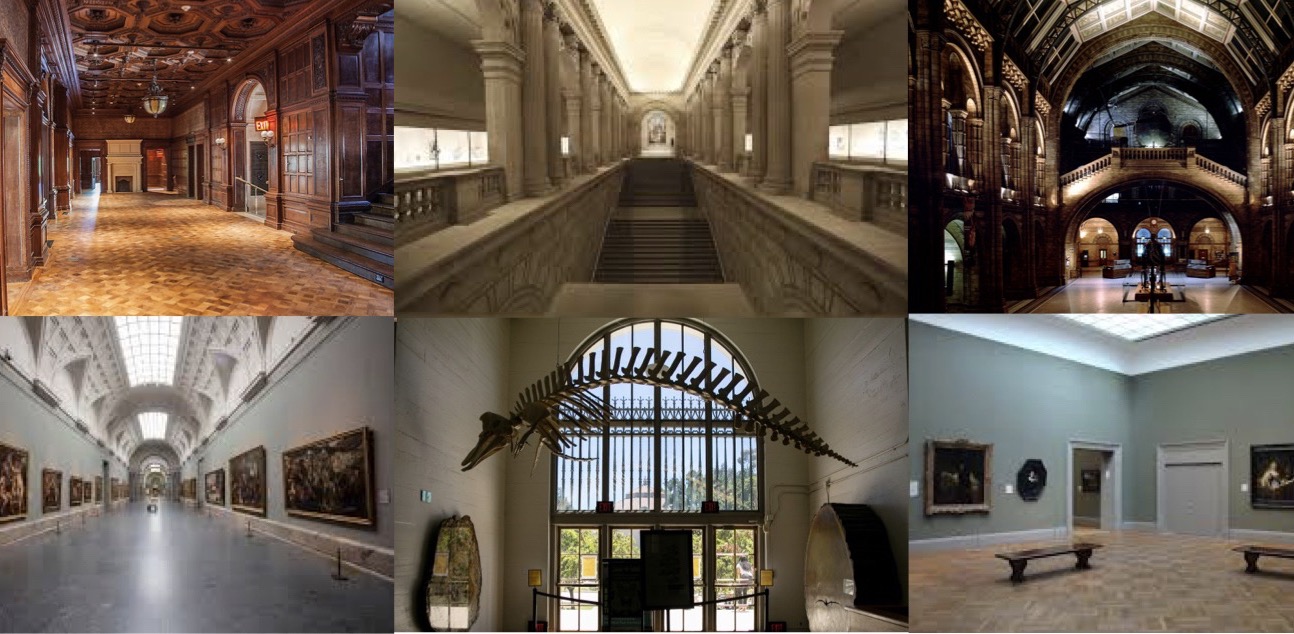The practical, financial, and social impacts of the coronavirus alongside a national reckoning with racial injustice has increased the urgency to address why, how, and for whom museums exist in the 21st century. For museum professionals, this pivotal question raises another: how might we transform our collective approach to designing museum experiences to better reflect the communities we serve?
Join Cooper Hewitt, Smithsonian Design Museum’s Interaction Lab for the release of Tools and Approaches for Transforming Museum Experience, a toolkit that contributes to this critically important conversation. The toolkit was co-authored by 15 museum professionals, who were convened by the Interaction Lab in Fall 2020 thanks to the support of the Samuel H. Kress Foundation. In their current roles, the co-authors represent diverse perspectives from across visitor experience including: curatorial, education, audience research, programming and public engagement, visitor services, exhibition design, digital, and accessibility.
In this hour-long webinar, the toolkit’s co-authors will present details on the process of putting together these ideas, share their thinking on the structure and contents of the toolkit, and leave plenty of time for audience questions. Program participants will receive the toolkit by email on the morning of March 24, ET.
Tools and Approaches for Transforming Museum Experience was co-authored by:
- Shanita Brackett, Walmart Director for Visitor and Guest Services, National Museum of African American History and Culture
- Isabella Bruno, Exhibition/Experiential Designer, National Museum of American History
- Kayleigh Bryant-Greenwell, Head of Public Programs, Smithsonian American Art Museum and Renwick Gallery
- Alexandra Cunningham-Cameron, Curator of Contemporary Design and Hintz Secretarial Scholar, Cooper Hewitt, Smithsonian Design Museum
- Silvia Filippini Fantoni, Deputy Director, Learning and Engagement, Newark Museum of Art
- Marie Foulston, Freelance Curator and Creative Director
- Rachel Ginsberg, Interaction Lab Director, Cooper Hewitt, Smithsonian Design Museum
- Hannah Goodwin, Accessibility Consultant and Collaborator
- Andrea Jones, Director of Education, Anacostia Community Museum
- Adam Martin, Chief Digital Officer, National Museum of African American History and Culture
- Katherine Miller, Senior Visitor Experience Associate, Cooper Hewitt, Smithsonian Design Museum
- Liz Neely, Curator of Digital Experience, Georgia O’Keeffe Museum
- Carolyn Royston, Chief Experience Officer, Cooper Hewitt Smithsonian Design Museum
- Casey Scott-Songin, Senior Manager Data and Insight, The National Gallery, London
- Dr. Lauren Vargas, Independent Researcher and Consultant
EVENT AND TOOLKIT ACCESS
The program will be a Zoom webinar. Upon registration, program attendees will receive a confirmation email containing information on how to join the webinar. Additionally, the Interaction Lab will send out a Zoom link along with a copy of the toolkit via email to all registered attendees four hours before the program.
ACCESSIBILITY
CART captioning will be provided for this program. Please reach out with questions or any additional requests for services by emailing CHAccess@si.edu or share when registering.
The Interaction Lab is an embedded R&D program driving the reimagining of Cooper Hewitt’s audience experience, across digital, physical, and human interactions. Since its Fall 2019 launch, the Lab has injected new ideas into the museum’s work through internal workshopping and strategy, an extremely successful public program series merging interactive design and museum practice, and a commissioning program that engages the design community as creative collaborators in creating the next wave of the Cooper Hewitt experience.
Empty museum image credits and locations from left: James Rudnick, Cooper Hewitt, Smithsonian Design Museum; Celia Tewey, Metropolitan Museum of Art; National History Museum London; Museo del Prado; Sam Hodgson, San Diego Natural History Museum; Regan Vercruysse, Metropolitan Museum of Art.
This program is made possible by support from the Samuel H. Kress Foundation.
